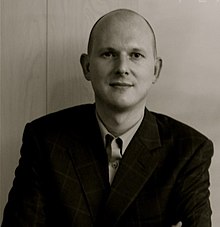
E3 was an annual trade event for the video game industry organized and presented by the Entertainment Software Association (ESA). It was held principally in Los Angeles from 1995 to 2019, with its final iteration held virtually in 2021. The event hosted developers, publishers, hardware manufacturers, and other industry professionals who used the occasion to introduce and advertise upcoming games, hardware, and merchandise to the press. During its existence, E3 was the world's largest and most prestigious annual gaming expo.
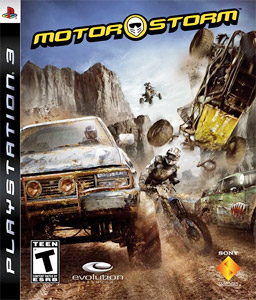
MotorStorm is a 2006 racing video game developed by Evolution Studios and published by Sony Computer Entertainment for the PlayStation 3. Based on off-road racing at a fictional festival, the game was announced at E3 2005, and released in Japan on 14 December 2006 and worldwide in March 2007. The game received a positive reception and sold well and led to a sequel as part of the MotorStorm series, MotorStorm: Pacific Rift (2008).
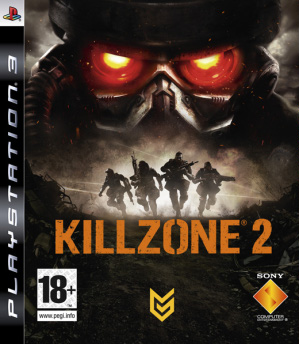
Killzone 2 is a 2009 first-person shooter developed by Guerrilla Games and published by Sony Computer Entertainment for the PlayStation 3. It is the second main installment in the Killzone series, following 2004's Killzone.

Sam & Max: Freelance Police was a graphic adventure video game developed by LucasArts from 2002 until its cancellation in 2004, and the final game in the company's adventure game era. Freelance Police was originally intended for release for Windows in early 2004 as a sequel to the 1993 title Sam & Max Hit the Road. The game was based on the characters Sam & Max: an anthropomorphic dog and "hyperkinetic rabbity thing" who debuted in a 1987 comic book series created by Steve Purcell. Freelance Police was announced in August 2002, and showcased at the Electronic Entertainment Expo (E3) in 2003. Like its predecessor, Freelance Police was designed as a point-and-click adventure game, but used a 3D game engine in place of the SCUMM and GrimE engines used in older LucasArts adventure games. The project's development was led by Michael Stemmle, one of the original designers for Sam & Max Hit the Road, while Steve Purcell assisted in developing the game's plot and providing artistic direction.

Gran Turismo HD Concept is the first installment of the Gran Turismo racing video game series to be released on the PlayStation 3. It was made available as a free download which was released on the PlayStation Store on December 24, 2006. A Blu-ray Disc version, called "Install Disc", was released in Japan in limited quantities in September 2007. The game was intended to be a sneak preview, in the likes of Gran Turismo Concept, preceding the release of a full version title, but the Gran Turismo HD project was canceled and replaced by Gran Turismo 5 Prologue.

Afrika, known as Hakuna Matata in Hong Kong, South Korea, Taiwan and Southeast Asia, is a photography and safari simulation video game developed by Rhino Studios and published by Sony Computer Entertainment for the PlayStation 3. The game was first announced in a promotional video during the Sony press conference at E3 2006. Afrika has been referred to as being similar to the Nintendo 64 title Pokémon Snap. Natsume Inc. released the game in North America.
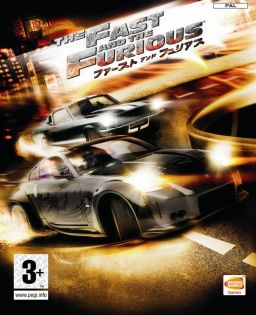
The Fast and the Furious is a 2006 racing game developed by Eutechnyx and published by Namco Bandai Games for the PlayStation 2 and PlayStation Portable. The game is based on The Fast and the Furious: Tokyo Drift.
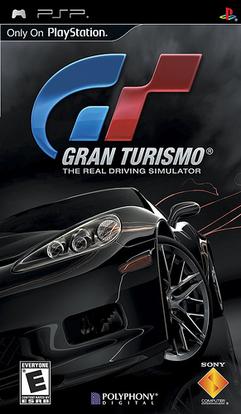
Gran Turismo is a 2009 racing video game developed by Polyphony Digital and published by Sony Computer Entertainment for the PlayStation Portable. The game was announced at Sony's E3 press conference on May 11, 2004, alongside the original PSP. Following five years of delays and speculation, during which it was variously known as Gran Turismo Portable, Gran Turismo 4 Mobile, Gran Turismo 5 Mobile and Gran Turismo 4.5, it made a reappearance at E3 on June 2, 2009, in playable form. It was released on October 1, 2009, as one of the launch titles for the new PSP Go. As of September 2017, Gran Turismo has sold 4.67 million units, making it one of the best-selling PSP games. On June 1, 2010, the game was re-released as part of Sony's Greatest Hits budget line of video games.
City of the Dead is a canceled first-person shooter video game, based on George A. Romero's Living Dead series of zombie films. The game was intended for release on the PlayStation 2, Xbox and PC platforms. Originally announced in December 2004, it was due for release in March 2006. No further details or announcements have been made about the game since its showing at E3 2005. It is presumed cancelled due to declared bankruptcy of publisher Hip Interactive in July 2005.
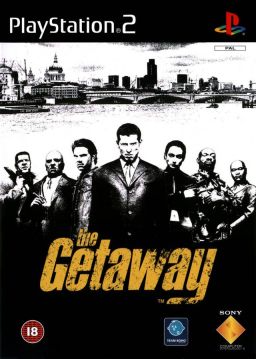
The Getaway is an action-adventure video game developed by Team Soho and published by Sony Computer Entertainment for the PlayStation 2. It was released on 11 December 2002. It is inspired by British gangster films such as Get Carter and Snatch. The game was planned to be released alongside the launch of the PlayStation 2 in 2000, but was delayed by over two years due to the difficulty of recreating large areas of London in high resolution.

The Electronic Entertainment Expo 2009 was the 15th E3 held. The event took place at the Los Angeles Convention Center in Los Angeles, California. It began on June 2, 2009, and ended on June 4, 2009, with 41,000 total attendees.
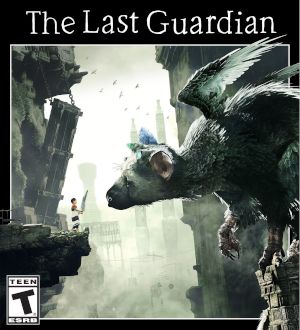
The Last Guardian is a 2016 action-adventure game developed by Japan Studio and GenDesign and published by Sony Interactive Entertainment for the PlayStation 4. Players control a boy who befriends a giant half-bird, half-mammal creature, Trico.

The Electronic Entertainment Expo 2010 was the 16th E3 held. The event took place at the Los Angeles Convention Center in Los Angeles, California. It began on June 14, 2010, and ended on June 17, 2010, with 45,600 total attendees. There was also an E3 event held in Sony's PlayStation Home.

Silent Hills is a cancelled horror game developed by Kojima Productions that was to be published by Konami Digital Entertainment for the PlayStation 4. It was in development since 2012 until its cancellation in 2015. It was to be the ninth main installment in the Silent Hill series, and was to be directed by Hideo Kojima and Guillermo del Toro.
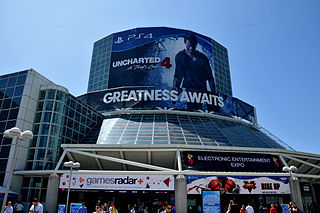
The Electronic Entertainment Expo 2015 was the 21st E3 held. The event took place at the Los Angeles Convention Center in Los Angeles, California. It took place from June 16 to June 18, 2015, with 52,200 total attendees.

The Electronic Entertainment Expo 2016 was the 22nd E3, during which several hardware manufacturers and software developers and publishers from the video game industry presented new and upcoming products to the attendees, primarily retailers and members of the video game press. The event, organized by the Entertainment Software Association, took place at the Los Angeles Convention Center from June 14–16, 2016. Approximately 50,300 people attended the event, slightly down from the previous year's. With video game consoles currently a couple years into their 8th generation, the focus of E3 2016 was primarily on new software titles, with new hardware revisions and auxiliary equipment to support the growing market sectors of 4K resolution displays and virtual reality headsets.

The Electronic Entertainment Expo 2017 was the 23rd E3, during which hardware manufacturers and software developers and publishers from the video game industry presented new and upcoming products to the attendees, primarily retailers and members of the video game press. The event, organized by the Entertainment Software Association (ESA), took place at the Los Angeles Convention Center from June 13–15, 2017. It was the first E3 to allow public access to the event, and as a result, the total attendance was about 68,400 which included 15,000 in public passes.
The Electronic Entertainment Expo 2020 would have been the 26th E3, during which hardware manufacturers, software developers, and publishers from the video game industry would have presented new and upcoming products. The event, organized by the Entertainment Software Association (ESA), was to take place at the Los Angeles Convention Center from June 9–11, 2020. However, due to concerns over the COVID-19 pandemic, the ESA announced it would cancel the event, marking the first time since the launch of E3 in 1995 that it was not held. In lieu of that, several publishers made plans to continue with presentations of game announcements during the planned E3 period, while others opted to use more traditional marketing throughout the year.
The Electronic Entertainment Expo 2023 would have been the 27th E3, during which hardware manufacturers, software developers, and publishers from the video game industry would have presented new and upcoming products. The event, organized by the Entertainment Software Association (ESA) and produced by ReedPop, was scheduled to take place at the Los Angeles Convention Center from June 13–16, 2023. However, on March 30, the event was officially confirmed to be cancelled due to lack of interest, namely as a result of Xbox Game Studios, Sony Interactive Entertainment, and Nintendo all choosing to forego attending E3 that year, which would have marked the first time since E3 1995 that none of the console manufacturers would have been in attendance. In addition, other gaming-related companies like Sega, Tencent, and Bandai Namco all pulled out of E3 2023 prior to its cancellation. In lieu of that, several publishers made plans to continue with presentations of game announcements during the planned E3 period, while others opted to use more traditional marketing throughout the year.

